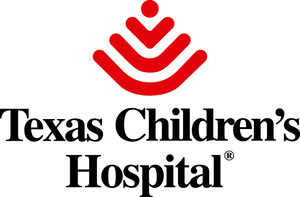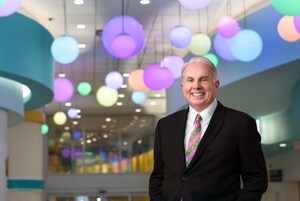Texas Children's Hospital announces the first use of extracorporeal liver support therapy in Texas
Hospital successfully transplants the first liver dialysis patient in the state
HOUSTON, July 11, 2014 /PRNewswire-USNewswire/ -- Texas Children's Hospital is excited to announce the first use of an extracorporeal liver support therapy in Texas for children with acute liver failure. The hospital now offers the Molecular Adsorbent Recirculating System (MARS®), a liver dialysis therapy, which helped a 9-year-old patient with hepatic coma become healthy enough to be a candidate for liver transplant. The patient recently received that life-saving transplant giving them a second chance at life.
"There was a tremendous multidisciplinary effort to make this happen, with nearly every service at the hospital playing a role," says Dr. Michael Braun, head of the Renal Section at Texas Children's and professor of pediatrics at Baylor College of Medicine. "We are thrilled to now offer patients with acute liver failure another treatment option through liver dialysis with the MARS system."
Children facing liver failure are among the most challenging patients to care for in the intensive care setting because liver failure can many times lead to multi-organ failure. As the toxins build, these children are at risk for developing life-threatening hepatic coma, the end-stage of liver failure.
"While we were achieving some results for these patients through a combination of kidney dialysis and pheresis, this combination method does not eliminate all of the toxins that accumulate in liver failure," says Dr. Ayse Akcan-Arikan, critical care and renal physician at Texas Children's and medical director of the extracorporeal liver support (ELS) program. "Utilizing liver dialysis with MARS, which is an intensive extracorporeal liver support therapy, we can help sustain patients in a better state of health as they await transplantation."
The MARS system works by removing protein-bound and water-soluble toxins by combining regular dialysis with albumin-assisted dialysis. This reduces plasma toxins and allows patients to wake up from hepatic coma. With early intervention, the MARS system provides liver support and can help improve or preserve multi-organ function by facilitating an improved environment for hepatic regeneration and clinical recovery. This liver dialysis method does not replace all functions of the liver, but provides significant support to help prevent further deterioration and many times can improve the patients' overall health.
"MARS is not a stand-alone therapy, nor should it be," Arikan, who is also an assistant professor of pediatrics at Baylor, adds. "In order to have a meaningful impact on patient outcomes, this therapy needs to be part of a vigorous liver transplant program. We are fortunate to have an outstanding collaborative culture with exceptional nurses who provide extracorporeal therapies at Texas Children's, so this was a natural progression of our program."
The Liver Transplant Program at Texas Children's Hospital aims to provide the best possible care to children who are in need of a liver transplant and achieve the best possible outcomes. Since 2000, more than 400 patients have received new livers at Texas Children's and in 2013 the hospital transplanted more children in need of livers than any other pediatric hospital in the U.S. Procedures include whole organ, reduced-liver, living and living-related donor, and in-situ split-liver transplants.
Working in a state-of-the-art facility with a focus on family-centered care, the experienced team at Texas Children's performs 35 to 45 liver transplants in children each year, ranging from young infants to age 18, making it one of the most experienced liver transplant programs in the U.S.
As of now, Texas Children's is employing the MARS system to help sustain the health of patients with end-stage liver failure. In the future, the system will also be used to treat patient populations suffering from poisonings or medication overdose as well by removing toxins and poisons that are ingested.
About Texas Children's Hospital
Texas Children's Hospital, a not-for-profit health care organization, is committed to creating a healthier future for children and women throughout the global community by leading in patient care, education and research. Consistently ranked as the best children's hospital in Texas, and among the top in the nation, Texas Children's has garnered widespread recognition for its expertise and breakthroughs in pediatric and women's health. The hospital includes the Jan and Dan Duncan Neurological Research Institute; the Feigin Center for pediatric research; Texas Children's Pavilion for Women, a comprehensive obstetrics/gynecology facility focusing on high-risk births; Texas Children's Hospital West Campus, a community hospital in suburban West Houston; and Texas Children's Hospital The Woodlands, a second community hospital planned to open in 2017. The organization also created the nation's first HMO for children, has the largest pediatric primary care network in the country and a global health program that's channeling care to children and women all over the world. Texas Children's Hospital is affiliated with Baylor College of Medicine. For more information, go to www.texaschildrens.org. Get the latest news by visiting the online newsroom and Twitter at twitter.com/texaschildrens.
Contact: Jenn Jacome
832-824-2108
[email protected]
Logo - http://photos.prnewswire.com/prnh/20140707/124821
SOURCE Texas Children's Hospital
WANT YOUR COMPANY'S NEWS FEATURED ON PRNEWSWIRE.COM?
Newsrooms &
Influencers
Digital Media
Outlets
Journalists
Opted In






Share this article